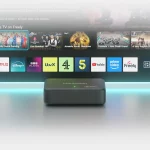ISP Satellite Internet Demands Slice of Broadband Delivery UK Budget

Satellite Internet, an aptly named broadband provider that makes use of the SES (ASTRA) platform, has called on local councils across the United Kingdom to spend some of the latest £250m in broadband funding on connecting the last 5% of rural areas to the Internet via Satellite instead of land lines.
This week the Government confirmed how its next tranche of £250 million in Broadband Delivery UK (BDUK) funding, which aims to extend the current superfast broadband (25Mbps+) coverage target from 90% (end of 2015) to 95% by 2017, would be split up around the country.
Advertisement
However not everybody was happy with the news and many anticipate that most of the funding will be used to help extend BT’s existing contracts in related areas, instead of giving smaller altnet ISPs a fair shot at the prize.
Mike Locke, Managing Director of SatelliteInternet, said:
“Whilst this is excellent news and will almost certainly be a boost for rural access across the UK, forgetting about the final 5% of the population entirely is a mistake. To give some perspective, £250m would cover a third of a million satellite installations, all equipment costs and a year’s service at 20Mbps which could solve the issue as quickly as the dishes could be installed.”
But would it really “solve the issue“? On the one hand Satellite’s big advantage is with its ability to achieve almost 100% coverage and the headline speeds have also improved significantly over the past four years, with many packages now offering affordable download rates of up to 20Mbps. According to Locke, Satellite broadband can now provide “consistent, reliable and fast download speeds“.
On the other hand there are some caveats to satellite services. Latency times (ping) tend to be very high, which makes fast paced multiplayer gaming impossible and also causes problems for some other time sensitive services (e.g. financial trading, VPN etc.). Data capacity is also more expensive on satellite and harder to upgrade, which means that usage allowances tend to be low and traffic / speed throttling can be quite aggressive.
In other words, you probably could cover a third of a million satellite installations with that £250m but some services would soon struggle to manage the extra network congestion (remember satellites also have to serve thousands of customers around Europe) and a few already seem to be having this problem.
Advertisement
Mike Locke added:
“I understand that satellite broadband has its limitations, but it is the perfect technology for those whom currently have little prospect of imminent connection to a fast and reliable network. It is available everywhere, it is quick, easy to install, cost effective, tried and tested.”
As it stands we’d agree that Satellite can work as a useful stop-gap solution for isolated rural areas, at least until something better comes along, although at the same time we’d rather see public money being spent on infrastructure that can do the job properly and deliver a full Internet experience.
On top of that Satellite is not classed as a Next Generation Access (NGA) platform and so would be unable to bid for funding from the BDUK pot. In the meantime, if people want it then they can always pay for satellite themselves and have it now.
Mark is a professional technology writer, IT consultant and computer engineer from Dorset (England), he also founded ISPreview in 1999 and enjoys analysing the latest telecoms and broadband developments. Find me on X (Twitter), Mastodon, Facebook, BlueSky, Threads.net and Linkedin.





















































Comments are closed